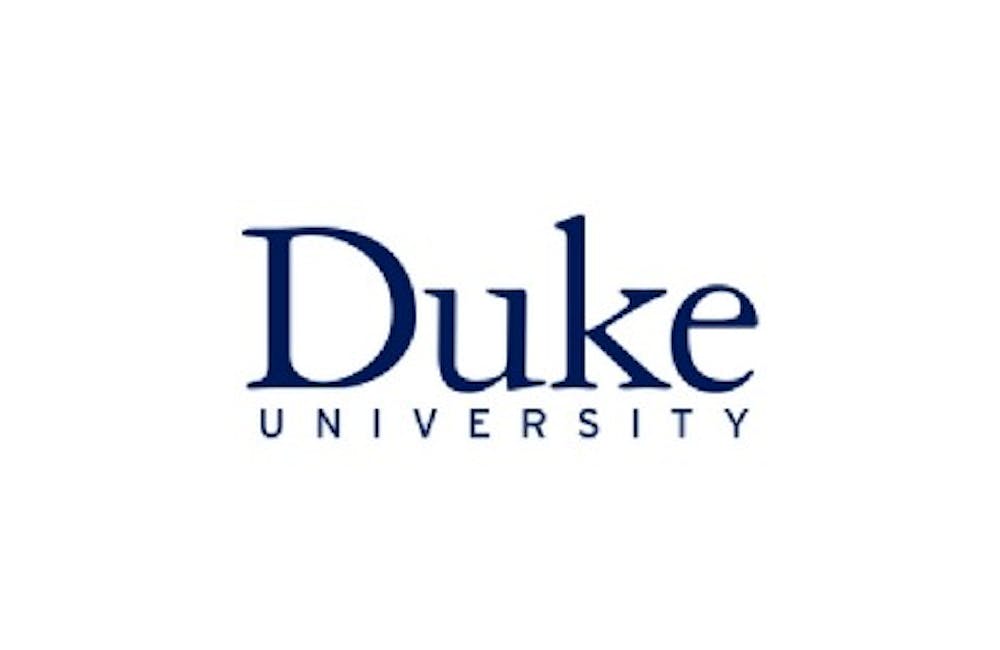Want to name a store, product or brand after Duke University? Think again.
The University has quietly become one of the most watchful litigants at the U.S. Patent and Trademark Office’s Trademark Trial and Appeal Board, taking swift action against anyone who may be trying to associate with Duke for profit or other gain.
Since the start of the year, the University’s Office of General Counsel has already filed six trademark oppositions—formal objections to prevent the official registration of another party’s trademark—at the board. It filed more than 45 oppositions in 2017.
Most recently, the University challenged corporate giant LG Electronics over an application to register “Duke” in standard characters as a mark for “electric rotary compressors,” “compressors for refrigerators” and “compressed air pumps.”
Once a new trademark application has been reviewed by the USPTO, trademark holders have 30 days to file an opposition to it. According to court documents, the University cited four separate grounds for opposition in its case against LG, claiming that the company’s use of the mark would lead to confusion with the Duke brand and name, impair the distinctiveness of the Duke brand and name, harm the reputation of the Duke brand and name and falsely suggest a connection with the University.
Attorneys representing the University and LG Electronics, as well as a spokesperson for LG Electronics, did not respond to requests for comment.
The case against LG is not the first time the University has challenged a well-known corporation or person. In 2014, school officials battled with descendants of the late actor John “Duke” Wayne over their use of the actor’s nickname to label products, such as a Duke-branded bottle of small batch Kentucky straight bourbon.
Michael Schoenfeld, vice president of public affairs and government relations, said the University cannot comment on the pending case with LG, but explained that the Office of General Counsel is always working to protect the school’s name, logo and brand from being leveraged to endorse a political candidate, product or cause.
“Duke is one of the most visible brand names in higher education,” Schoenfeld wrote in an email. “The University vigorously defends our trademarks and other legal protections to avoid confusion in the public and to ensure that Duke’s name and images are protected from misuse.”
Indeed, Duke does have a global reputation. It has consistently ranked among the top 30 world universities in terms of brand reputation, and the Twitter account for its men’s basketball team has more followers than any other college athletics program.
Schoenfeld said Duke makes no money from its trademark oppositions and explained that trademark holders have an obligation to address potential infringements or else they may risk losing their right to the trademark in the first place.
“Duke takes the necessary steps to protect its registered trademarks,” he wrote. “Many times that occurs informally without need for a legal challenge, but if necessary, the university will exercise its legal rights.”
Still, Duke exercises its legal rights more frequently than most of its peers, wrote Bill Donahue, a senior reporter specializing in intellectual property at Law360, a subscription-based legal news service from LexisNexis.
He wrote in an email that the University "is one of the most active [Trademark Trial and Appeal Board] litigants in the country."
“There's nothing inherently wrong with doing so; lots of the applicants that the school is opposing really are trying to associate themselves with the school,” Donahue wrote. “But Duke files a lot more of these cases than, say, other prominent sports schools that presumably face a similar amount of infringement problems.”
Before filing oppositions, trademark holders often file for extensions of the 30-day opposition period—a tactic Donahue said can serve as a “warning shot” to would-be offenders. Trademark holders can file for these extensions multiple times, and the TTAB’s inquiry system indicates Duke has already been granted several extension-of-time requests in 2018.
But Donahue noted that even though Duke files an exceptional number of oppositions and extension-of-time requests at the TTAB, it does not actually file many infringement lawsuits in federal court. Federal suits are meant to halt the actual use of a mark in practice, whereas oppositions are challenges to applications for trademark registration.
“They deal with similar issues, but TTAB cases are way less important than court cases,” Donahue wrote.
Nonetheless, Duke has shown it is not afraid to sue in federal court—as it did with BlueDevil Products in 2013—when necessary. And, as the pending case with LG Electronics illustrates, Duke is not afraid to take on large-scale corporations either.
Get The Chronicle straight to your inbox
Sign up for our weekly newsletter. Cancel at any time.

